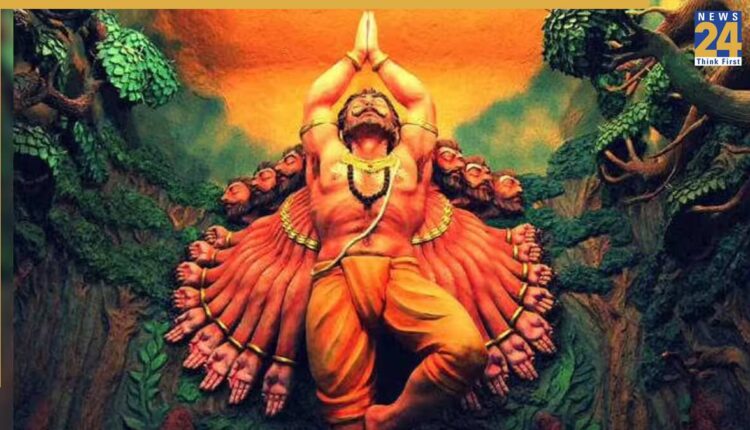As the country plans to set out to burn towering Ravana effigies on October 2, a village will move on to celebrate Dusshera in a completely unique manner. It might take the readers by surprise that locals here worship Ravana, the demon king from the epic Ramayana.
Locals here, in this remote area of Noida, believe that Ravana’s birth took place here, and beyond that, consider him to be the ancestor and great scholar, Maha Brahmin. Instead of burning his effigy, they offer prayers, and this tradition has been followed for generations. It’s believed that whoever makes a wish here, it never goes unfulfilled.
The Shiv Mandir in Bisrakh village in Noida is also identified as the Ravana Temple. Not long ago, a statue of King Ravana was also installed in the temple.
Krishna Kumar, a resident, stated to NDTV that the residents consider Ravana their ancestor and father; that’s why they do not burn his effigy here. As per a few other residents, Ravana worshipped the Shiva Lingam here. An ancient Shiva temple exists here, where Ravana is worshipped, and devotees chant Jai Lankesh.
History of Worshipping Ravana
The Bisrakh village was earlier known as Vishveshara, named after Ravana’s father. It’s believed that during the Treta Yuga, Rishi Vishrava was born here and established a Shiva Lingam, which, as per the villagers, was also worshipped by Ravana. The temple has gained a lot of attention from across the country.
This is not the only village where Ravana is worshipped. Kanpur’s Dashnan temple opens its doors for devotees on Dusshera; people worship Ravana and chant “Jai Lankesh” and “Lankapati Naresh ki Jai Ho” on this day. It is said that Ravana is worshipped as a guardian of Lord Shiva and Goddess Chinnamasta.
Here, the Ravana idol remains covered and is only revealed when it has to be worshipped. For the rest of the year, the temple remains closed.

